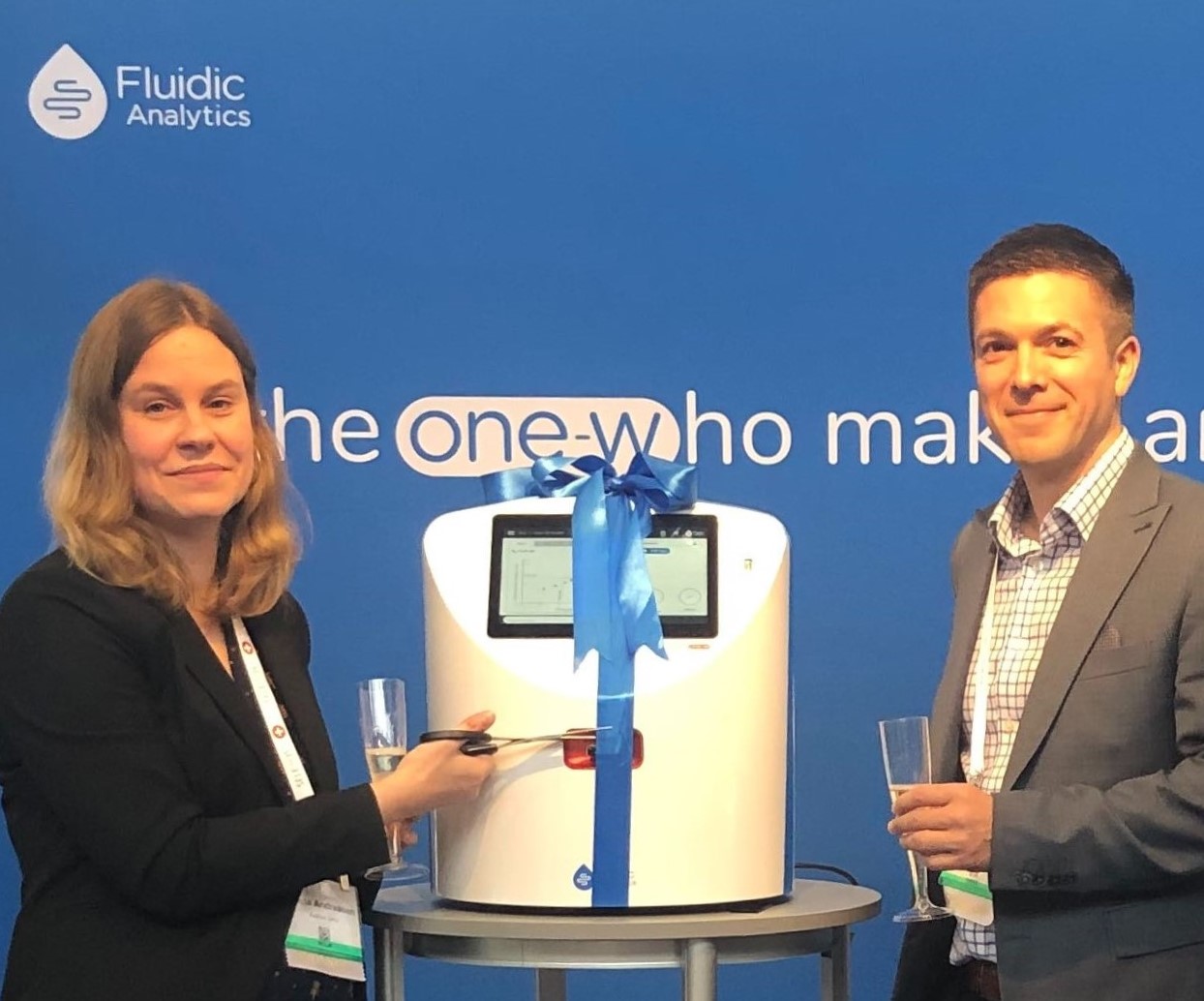Channels
Special Offers & Promotions
New Fluidity One-W set to revolutionize protein interaction analysis
Accurate and detailed protein interactions analysis under near-native conditions with an easy-to-use system
Fluidic Analytics Ltd, experts in protein analysis and the company behind in-solution diffusional sizing, launches a breakthrough innovation at PEGS Europe Protein and Antibody Engineering Summit which was held 18-22 November 2019 in Lisbon, Portugal. The new Fluidity One-W is set to revolutionize protein interaction analysis, with the ability to accurately assess on-target protein interactions in solution, even in complex backgrounds.
Advancing the field of comprehensive protein analysis, this cutting-edge device can analyze protein interactions in crude biological backgrounds—such as cell lysates or blood plasma—using a brilliantly simple set-up that saves valuable research time. The Fluidity One-W can be used to confidently collect accurate and reliable protein interaction data thanks to the company’s proprietary microfluidic diffusional sizing (MDS) technology. The One-W can deliver both binding affinities and highly sought-after stoichiometry information from a single experiment, while also providing vital information about how the size of the protein changes during binding. This unique combination of information can help scientists determine how strongly proteins are binding, how many protein molecules are binding at a time and whether the protein is binding to its target or to something unexpected. The need for better ways to understand protein interactions was highlighted in a recent study in the journal Science Translational Medicine, which showed that ten anti-cancer drugs currently in clinical trials do not interact with their targets in the way that clinicians thought they did.
Andrew Lynn, CEO of Fluidic Analytics commented, “Understanding protein interactions is vital for life-science research. We are delighted to provide scientists with new capabilities to investigate a range of challenging protein interactions that couldn’t be accurately studied before. This includes interactions involving some of the least characterized, but most interesting, potential drug targets such as membrane proteins and intrinsically disordered proteins. We believe that our technology will facilitate significant advancements in human health; from understanding target proteins for research purposes to furthering drug discovery and even, in the future, impacting healthcare directly.”
Early adopters from leading research laboratories are already benefitting from the Fluidity One-W’s unique capabilities for protein analysis, uncovering new information on proteins that could not easily be studied before. Maria Andreasen, Assistant Professor, Department of Biomedicine, University of Aarhus commented, “I’m excited to include the Fluidity One-W and MDS technology in our lab, where we will use it in our research into protein aggregation in bacterial biofilms. Having a technique which is quick and easy to use but allows us to gain deep insights into protein interactions will really push our research forward.”
In addition to providing detailed and accurate protein interaction data, Fluidic Analytics works hard to simplify workflows with reduced set-up and sample preparation time. Head of R&D at Fluidic Analytics, Dr Sean Devenish, explained, “We put our users at the forefront of our innovations. With its simple yet innovative 3-step system of Pipette-Plug-Play, the Fluidity One-W can be used by anyone in the laboratory, without the need for detailed training or years of experience. Combined with its ability to study proteins in complex backgrounds, this simplicity allows researchers to gain information and make important decisions much earlier during the research and development process.”
Fluidic Analytics marked the Fluidity One-W launch with a champagne celebration accompanied by a Q&A with applications specialist Jonathan Faherty and Professor Maria Andreasen from University of Aarhus on 19th November at PEGS 2019. A talk by Professor Tuomas Knowles, University of Cambridge entitled “Probing Proteins in Small Volumes” also highlighted the possibilities of MDS and the Fluidity One-W.
Media Partners



